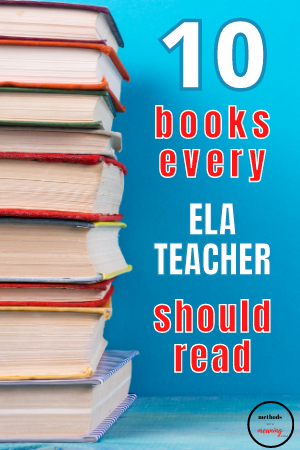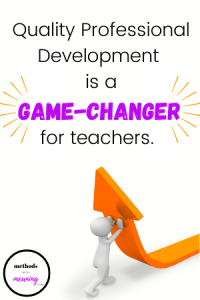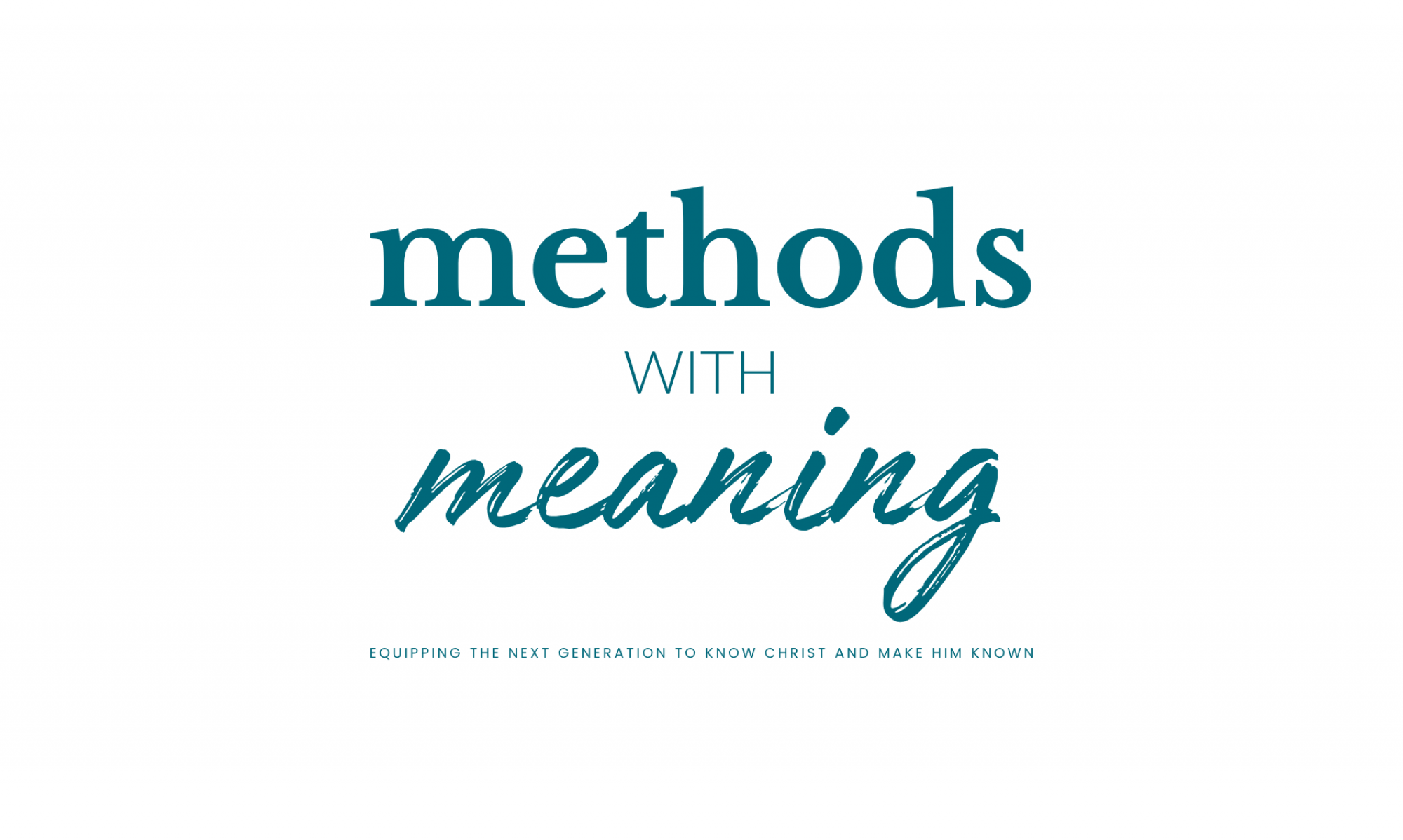Professional Development for Teachers Should Spark Passion
I am a professional development NERD.
I can’t express how much I love it. I am so very happy to sit and read a book on education, especially those centered around literacy instruction. You wanna send me to a conference? I am in my glory! I will sit in the front, write down everything I can possibly scribble while the presenter talks, then gush about it when I get home. I may or may not line up for an author’s autograph.
If you are not providing specific professional development to your teachers about current educational trends and topics, you are missing out!

Excellent professional development is a game-changer for educators, but not all PD is created equally. This is honestly a weakness I’ve found of the Christian PD conferences I’ve attended. They were very “rah-rah Christian school” and light on things that will actually make for better teachers and administrators. I also found that the “current” best practices they promoted were often decades old and ignored more modern research. I guess you could say I was under-whelmed.
I’ve been blessed to attend several national conferences across many educational topics as well as many regional and local trainings on literacy instruction, and I now believe God afforded me those opportunities so I can share them with other educators. At these conferences, I got to hear renowned literacy experts whose books I’d either read already, or would read after hearing them present. Be sure to check out the Biblical Implications section of this post because attending secular conferences is definitely a mixed bag. But first, let me share with you some of the books that I have loved over the years.
This site contains affiliate links to products. We may receive a commission for purchases made through these links.

Reading and Writing Instruction PD Favorites
Here are some of the books that have shaped me:
- Conferring with Readers (2007) by Jennifer Serravallo. Ahhh, Jennifer Serravallo. Where were you all my (teaching) life? Though I wasn’t exposed to her work when I was in the classroom, reading this book was for me like curling up on the couch with a kindred spirit and talking about all the things I love about reading. I felt a bit like Anne of Green Gables meeting Diana Barry if I’m honest. This book is a MUST read, and I’d suggest your school doing it as a book club or staff read for all reading teachers. She does an amazing job summarizing the workshop model with just the right amount of detail, then dives into the super important work of conferring with readers. If you’re at all intrigued by the idea of the workshop, or you want to know how conferring with readers can benefit your students regardless of your curriculum, get this book now! Yes, I’m a total fan, and yes, I would totally stand in line for this girl’s autograph. If you’re not ready to pull the trigger on that Amazon cart, then read more about reading and writing conferences and how they can be incorporated into any curriculum.
- The Reading Strategies Book (2015) and The Writing Strategies Book (2017) by Jennifer Serravallo. Again, where were these when I was teaching? Don’t hesitate- these can benefit you know matter what reading and writing program you’re using. I’d recommend purchasing a copy of each book for every teacher if possible, or at least having a few copies in the school’s PD library.
- The Daily 5 (2006, 2014) by Gail Boushey and Joan Moser are great for setting up the workshop’s independent work time. I strongly prefer the first edition, though it’s becoming more difficult to find. Their philosophy changes somewhat in the second edition such that students are each working on a different part of the “five” (I’ll explain that soon) based on their choice. I prefer to have all students working on the same component at a time for easier management and accountability. The Daily 5 isn’t exactly a reading workshop model, instead breaking up components that can be used in the workshop into five sections of instruction that cover the entire literacy block (Read to Self, Read to Someone, Listen to Reading, Work on Writing, and Word Work). I think this model can be good for lower elementary, and there are ideas in the book that are great for incorporation into a traditional workshop, which is why I’ve included it here. Their way of launching independent reading and ensuring accountability and productivity among students is excellent, and I believe training on just that portion should be included in any school that wants to launch a workshop model. It’s just smart and helps avoid frustration later in the year.
- Growing Readers (2004) by Kathy Collins is great for those working with younger students, or perhaps for those working with older students who are new to the workshop model and causing the teacher some frustration with classroom management. Collins does a great job outlining everything for young readers. This is a must read for primary teachers!
- Strategies that Work (2017) by Harvey and Goudvis is one of the first books I read about reading strategy instruction. I didn’t find it to be a read cover-to-cover book, but it gave me a good general idea of what strategy instruction was, why it was important, and how to begin that work in my classroom. I don’t think every teacher needs this book, but a copy or two in the PD library is a good idea. Of course, I read the first edition of the book, and they’re now on the third. It might be worth checking out the newest version to see if it’s even more helpful than the first.
- The Book Whisperer (2010) or Reading in the Wild (2013) by Donalyn Miller focus on developing a love of reading in students. These books (though I admittedly have more experience with the first one) help teachers understand some of the theory behind this type of literacy instruction and can help generate enthusiasm for the work ahead.
- When Kids Can’t Read, What Teachers Can Do (2002) by Kylene Beers was one of the first books I read that really taught me how to teach reading. Geared for teachers of students in grades 6-12, the book could probably be generalized to fifth grade as well. If you’re not sure how to identify student’s comprehension learning needs, this is a great place to look.
- Notice and Note: Strategies for Close Reading (2012) by Kylene Beers and Bob Probst is another good read for reading instructors. The authors went through mountains of literature and found that all books have components that can be generalized into what they call “signposts.” By teaching students to recognize signposts in their reading, comprehension gains can be made across the board.

Best Conferences for Professional Development for English Language Arts (ELA) Teachers
In addition to the book listed above, these conferences/presenters have given me a lot of information and food for thought:
- NCTE’s (National Council of Teachers of English) Annual Conference- This conference is a fantastic source of information about teaching literacy. I have found that by looking at the Teacher’s College Reading and Writing Program (TCRWP) staff list, then “stalking” their presentations, I can learn so much my head wants to explode in a very, very good way. Definitely seek out Lucy Calkin’s session(s) while you’re there. I didn’t list any of her books, but she is a great resource for all things workshop. Note that this conference is VERY secular (I’ll explain that more below).
- Anything TCRWP- I haven’t actually been able to get to one of their Saturday Reunions (I seem to always give birth at roughly the same time!), but I have heard great things about them. They are FREE which is a huge bonus, and you get to hear from the best all day long. They have trainings over the summer that I’m sure would also be amazing, but I haven’t been able to get accepted. They’re highly competitive and I believe preference goes to larger schools. Perhaps it goes to secular schools, too. I think it’s still worth applying, though. You might be wondering why I’m recommending them since I haven’t been to their conferences. As mentioned above, I have seen them present at NCTE many times, and they consistently provide the best content for the workshop. There is a ton of information on their website including some really great videos demonstrating what the workshop should look like. Definitely check them out! Note that these videos are to support their own workshop curriculum, but they are still helpful for schools that want to create your own lessons. There are pros to using their curriculum, for sure, but I have come to the conclusion that it might benefit schools to develop their own lessons if they have the time. Calkin’s Units of Study are expensive and can be overwhelming to teachers.
- Local conferences- keep an eye out for local and regional conferences about literacy instruction. While the best content is usually found at the national ones, you can get some good information at your state’s ILA (International Literacy Association) chapter’s conference or conferences put on by SDE or other PD firms. I think it’s really important to get your teachers (and yourself!) in front of educational experts when possible to keep your ideas flowing and your excitement up. Of course, if budget precludes this, reading some amazing books is a great way to increase in both passion and knowledge.
A Christian Worldview Approach to Literacy PD
Attending secular conferences will of course require discernment. NCTE’s annual conference has the very best information for literacy instruction in my opinion, but they have become increasingly political which can be annoying at best, and sometimes promote things against our worldview. At worst, they may even occasionally mock our Christian views. My last time attending their conference was a few years ago, so I’m not sure if that has changed or not. Years ago when I first attended, there was nothing offensive. I’m concerned that the conference may have traveled even further from our worldview in the last couple of years based on the past trajectory. Of course, this offensiveness is true of only certain presenters and not across the board. Christian administrators and teachers will have to reflect on whether they are ok with financially supporting an organization that openly opposes our worldview in some areas (unrelated to actual literacy instruction!). I’d believe that most attenders and presenters are not Christ followers, so attendees should be ok with occasional profanity or other language that may offend some believers. There are definite cons to this conference attendance to counteract the many pros. I’d recommend sending only one or two representatives from your school who can report back what they learn to minimize both expense and exposure until you can determine your personal level of comfort with the conference. Of course, if the conference comes to your area, then make the most of it without hotel and travel expenses!
At the conference, I have found TCRWP’s presenters to be consistently professional and can’t recall anything offensive from one of their sessions. Lucy Calkins has been fabulous at every presentation I’ve attended, and she carefully avoids the controversial. I haven’t heard Jennifer Serravallo in person, but I would imagine she would more often tend to avoid the controversial based on her social media presence, which is a bit political but not as much so as other educational experts. Kylene Beers, whose early work was very formative for me, seems to have found a new platform for her personal and political views, sharing less pertinent content than I’d like, instead spending a significant amount of time discussing non-literary related things. I no longer fully endorse attending her sessions, though I am sure if you do, you will learn some very useful things. Just be prepared to have thick skin.
What the Research Says about Professional Development for Teachers

- Jenkins and Agamba’s study of the impact of professional development on CCSS implementation concluded that implementation could not be effective without professional development (Jenkins & Agamba, 2013). Jenkins, S. & Agamba, J. J. (2013). The missing link in the CCSS initiative: Professional development for implementation. Academy of Educational Leadership Journal, 17(2), 69-79.
- DuFour and Guskey found that “teacher professional development must focus on helping teachers to determine ‘that they are teaching what they are supposed to be teaching, and students are learning what they are supposed to be learning’” (as cited in Jenkins & Agamba, 2013, p. 73). Jenkins, S. & Agamba, J. J. (2013). The missing link in the CCSS initiative: Professional development for implementation. Academy of Educational Leadership Journal, 17(2), 69-79.
- According to Mizell (2010), professional development is the only method we have for teacher learning that will improve their performance and therefore student outcomes. Mizell, H. (2010). Why professional development matters. Oxford, OH: Learning Forward.
Paying for PD
Wondering how to pay for all this PD?
Title 2 funds are earmarked specifically for professional development. Large schools and districts often use the funds to pay for a teacher coach or other staff position, but for many Christian schools the budget will not be large enough to do that. Instead, use the money to send teachers and admin to conferences and build up your professional development library. And remember, there are lots of great DVD and virtual trainings your teachers can do using these funds, too.
One More Thing:
In my role as Director of Curriculum and Instruction for a Christian school, I conducted a lot of PD for our teachers. I created a lot of content for conferring with readers and the reading and writing workshop. If you’re within driving distance of Albany, NY and would like to discuss the possibility of me presenting about literacy to your teachers, please contact me.
Quality Professional Development will Excite Teachers and Improve Student Outcomes!
Stay Connected!
Follow me on Facebook and join our collaboration group!






